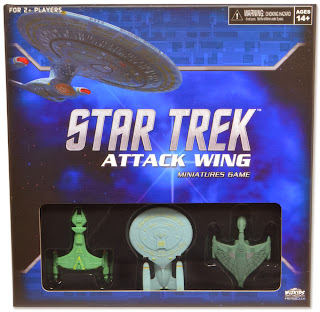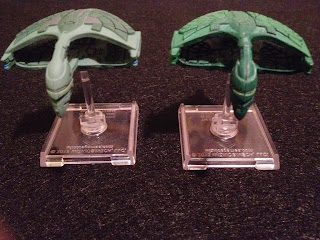 Mystery of the Abbey
Mystery of the Abbey- Designed by Bruno Faidutti and Serge Laget
- Published by Days of Wonder
- For 3-6 players, ages 10+ though I recommend 4 or 5 player games.
- Playtime is around 2 hours, though I've seen a 75 minute game and a 2.5 hour game recently.
Catch
Take the classic game Clue, add controlled movement, add a lot more options, and you have Mystery of the Abbey. Basically, MotA is Clue on steroids.
Take the classic game Clue, add controlled movement, add a lot more options, and you have Mystery of the Abbey. Basically, MotA is Clue on steroids.
Mechanics
In Mystery of the Abbey, players are trying to figure out which monk card is missing from the game. Each monk has several characteristics, their order, their position, if they have a beard or clean-shaven, if they're hooded or unhooded, and if they're skinny or obtuse. Players start with a hand of monks which they can rule out as suspects, and they gain more knowledge by taking actions.
 On a turn, players move 1 or 2 spaces, and may perform the action of the room they're in. If they end their movement on the same space as another player, they must ask them a question. The other player then has two options, they may either answer honestly, and then ask the first player a question, or they may take a vow of silence and not ask a question. After each player takes 4 turns, then all players return to the chapel for mass which involves passing cards and some kind of event. Figuring out what to ask, and when to answer questions other players ask is a key to this game. The first player to figure out who the murderer is, and get to a specific location, gets 4 points. There are other ways to get points in the game, but most often, the player to figure out the murderer will be the winner.
On a turn, players move 1 or 2 spaces, and may perform the action of the room they're in. If they end their movement on the same space as another player, they must ask them a question. The other player then has two options, they may either answer honestly, and then ask the first player a question, or they may take a vow of silence and not ask a question. After each player takes 4 turns, then all players return to the chapel for mass which involves passing cards and some kind of event. Figuring out what to ask, and when to answer questions other players ask is a key to this game. The first player to figure out who the murderer is, and get to a specific location, gets 4 points. There are other ways to get points in the game, but most often, the player to figure out the murderer will be the winner.
 On a turn, players move 1 or 2 spaces, and may perform the action of the room they're in. If they end their movement on the same space as another player, they must ask them a question. The other player then has two options, they may either answer honestly, and then ask the first player a question, or they may take a vow of silence and not ask a question. After each player takes 4 turns, then all players return to the chapel for mass which involves passing cards and some kind of event. Figuring out what to ask, and when to answer questions other players ask is a key to this game. The first player to figure out who the murderer is, and get to a specific location, gets 4 points. There are other ways to get points in the game, but most often, the player to figure out the murderer will be the winner.
On a turn, players move 1 or 2 spaces, and may perform the action of the room they're in. If they end their movement on the same space as another player, they must ask them a question. The other player then has two options, they may either answer honestly, and then ask the first player a question, or they may take a vow of silence and not ask a question. After each player takes 4 turns, then all players return to the chapel for mass which involves passing cards and some kind of event. Figuring out what to ask, and when to answer questions other players ask is a key to this game. The first player to figure out who the murderer is, and get to a specific location, gets 4 points. There are other ways to get points in the game, but most often, the player to figure out the murderer will be the winner.
Interaction
 Questioning and listening is a huge part of this game. Questions are very interactive, while listening is very passive, but both are very crucial aspects of the interaction in MotA. This game requires player interaction, else it becomes a very tedious exercise in luck.
Questioning and listening is a huge part of this game. Questions are very interactive, while listening is very passive, but both are very crucial aspects of the interaction in MotA. This game requires player interaction, else it becomes a very tedious exercise in luck.
 Questioning and listening is a huge part of this game. Questions are very interactive, while listening is very passive, but both are very crucial aspects of the interaction in MotA. This game requires player interaction, else it becomes a very tedious exercise in luck.
Questioning and listening is a huge part of this game. Questions are very interactive, while listening is very passive, but both are very crucial aspects of the interaction in MotA. This game requires player interaction, else it becomes a very tedious exercise in luck.
Theme
The abbey theme comes through with a lot of flavor text on the library cards. I like the way the theme is incorporated with the mechanics, but the game could have a completely different theme and still play the same. Nevertheless, the theme is good, especially for a family game.
Components
 The game has a bell! See, I like random cool components that actually serve a game purpose, and the bell here fits the bill. Player pawns are well done, the custom dice work well, and all the cards are good quality. The rules are well written with plenty of examples to help new players learn and people who haven't played in a long time refresh their memory.
The game has a bell! See, I like random cool components that actually serve a game purpose, and the bell here fits the bill. Player pawns are well done, the custom dice work well, and all the cards are good quality. The rules are well written with plenty of examples to help new players learn and people who haven't played in a long time refresh their memory.
The abbey theme comes through with a lot of flavor text on the library cards. I like the way the theme is incorporated with the mechanics, but the game could have a completely different theme and still play the same. Nevertheless, the theme is good, especially for a family game.
Components
 The game has a bell! See, I like random cool components that actually serve a game purpose, and the bell here fits the bill. Player pawns are well done, the custom dice work well, and all the cards are good quality. The rules are well written with plenty of examples to help new players learn and people who haven't played in a long time refresh their memory.
The game has a bell! See, I like random cool components that actually serve a game purpose, and the bell here fits the bill. Player pawns are well done, the custom dice work well, and all the cards are good quality. The rules are well written with plenty of examples to help new players learn and people who haven't played in a long time refresh their memory.
Learning Curve
Mystery of the Abbey takes a game to have a sense of what to ask and when to answer questions, as well as have some idea about why other people are asking what they're asking. It's certainly a game that anyone can win their first time, especially if they enjoy the deduction in Clue, but it is not an easy game.
Replayability
I've gone in spurts with MotA. I don't play it all that often, and I think that I'd get tired of it if I did. That's my personal taste in frequency, but the game is highly replayable. Sure, it is essentially the same problem every time, but there's a lot of different ways to solve the problem, and the clues are different, so the game feels different every time you play. I suppose once people really know the game, they will play the same way every time, but I haven't gotten anywhere close to that yet.
Mystery of the Abbey takes a game to have a sense of what to ask and when to answer questions, as well as have some idea about why other people are asking what they're asking. It's certainly a game that anyone can win their first time, especially if they enjoy the deduction in Clue, but it is not an easy game.
 |
| A Crypt card that players can get from the crypta in order to take an extra turn later in the game. |
Replayability
I've gone in spurts with MotA. I don't play it all that often, and I think that I'd get tired of it if I did. That's my personal taste in frequency, but the game is highly replayable. Sure, it is essentially the same problem every time, but there's a lot of different ways to solve the problem, and the clues are different, so the game feels different every time you play. I suppose once people really know the game, they will play the same way every time, but I haven't gotten anywhere close to that yet.
Why I like Mystery of the Abbey
I liked Clue growing up, it's probably the most mainstream game that I'd be willing to play right now. MotA takes the things that I like about Clue and refines it, and adds in different options that make the game very enjoyable. It's a process to try to win, but it's one of those games where I don't really care if I win or not, because the process has been enjoyable.
 |
| Sample Mass card This one is for round 6 |
Why I don't like Mystery of the Abbey
MotA is a bit long for what it is. I've taken to using some of the speed up variants in the rules, because they eliminate the tedious, and add to the fun part of the game. Even with those, the game can be long. It really depends on the other players though. Certain players will make this game a blast, while others can make it really tedious.
MotA is a bit long for what it is. I've taken to using some of the speed up variants in the rules, because they eliminate the tedious, and add to the fun part of the game. Even with those, the game can be long. It really depends on the other players though. Certain players will make this game a blast, while others can make it really tedious.
 |
| The player aid and suspect sheet hiding device. |
 |
| Suspect sheet |
Would it be a good game for Tabletop?
No. Mystery of the Abbey really rewards players who know how to play the game well when it comes to questions, and I think this would be hard to watch and understand what's going on for someone who didn't already know the game.






















